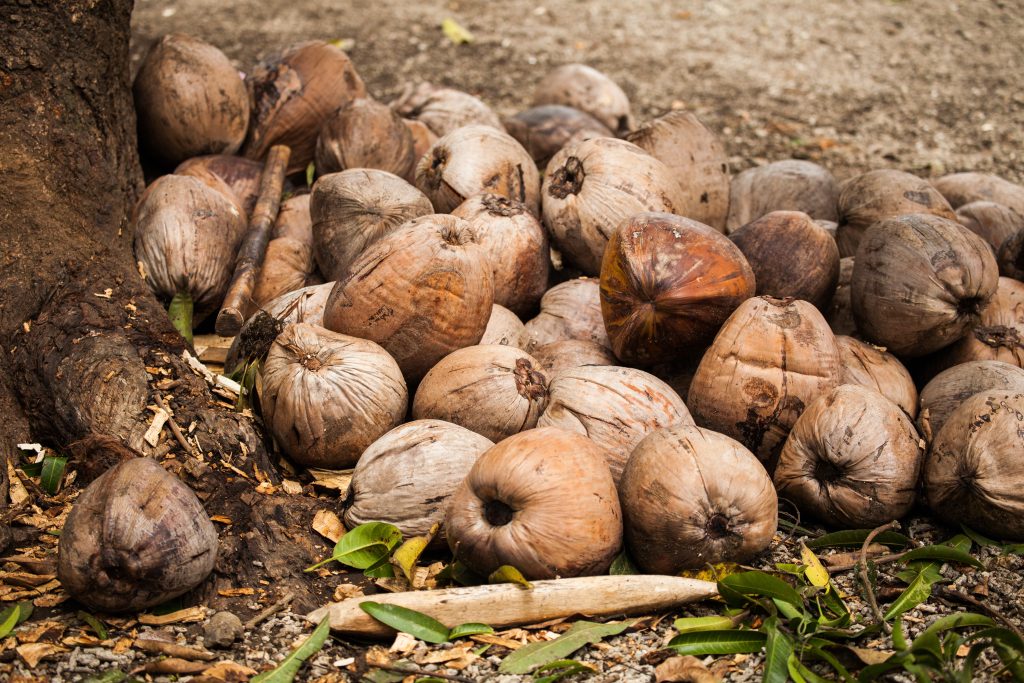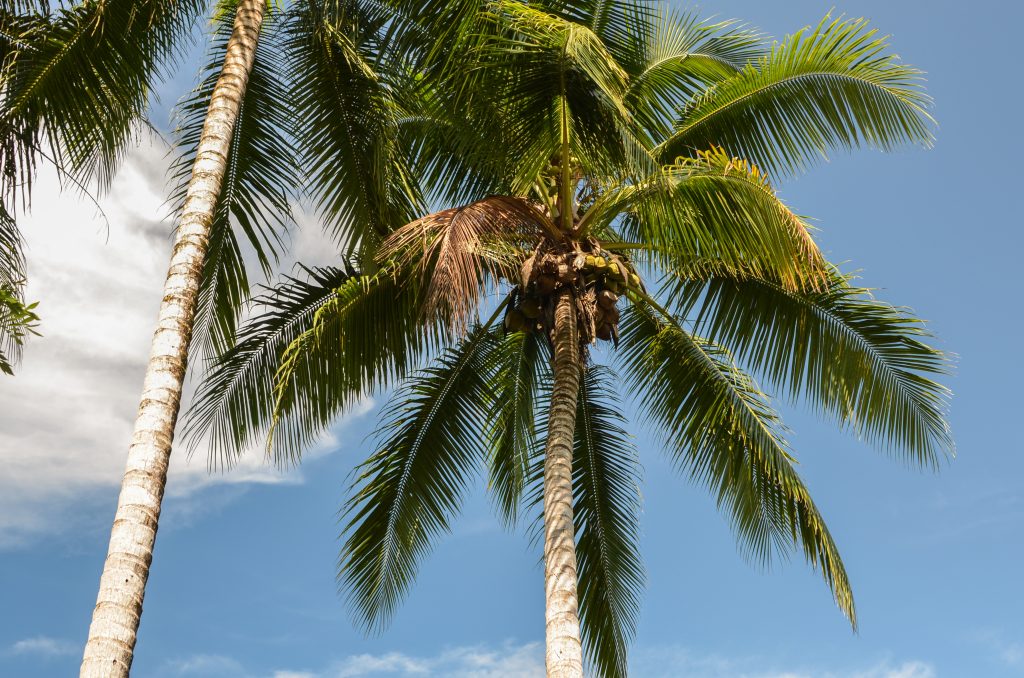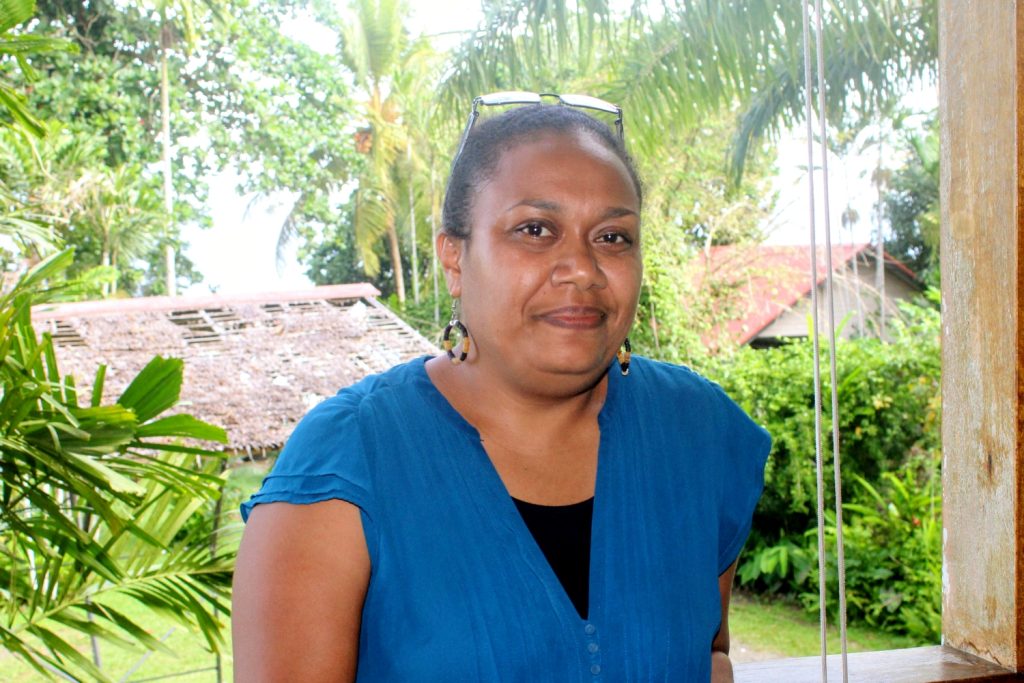Cracking the coconut biz in Wabumari
A new chapter for colonial-era plantations brings opportunities for the people that depend on and care for rainforest.
Coconut? More like wondernut.
Coconut palms are found all around the coast in Wabumari, Papua New Guinea (PNG). Known locally as the ‘tree of life’, this particular palm is relied on for so much. Walls and roofs of buildings can be made from its leaves, trunks are used as posts to create fences and trees that line the shores act as flood defences, with dense roots meshing together to reinforce eroding coastlines.
The coconut itself is a wonder. Coconut flesh can be prepared and eaten in many different ways (and it’s really quite delicious). Coconut water is extremely hydrating; ideal if you have been feeling unwell and need to replace salts. Oil can be extracted from dried coconut (copra) for cooking and moisturising skin. Other coconut products include coconut soap and shampoo to use and sell; even coconut by-products can be used as animal feed.
So far, so good, but if rainforest beyond the coast is to stay healthy and be an effective carbon sink, the people that live there must thrive, not just survive.


Coconut? More like wondernut.
Plantation 2.0
The colonial-era plantations on the outskirts of Wabumari contain trees well over 100 years old, which still bear fruit. They were planted, maintained and cared for by the grandparents and great-grandparents of people living in communities nearby. Because of their age, these trees have a low yield and low-quality nuts, resulting in poor quality final products. Not fit for national or international markets, nor providing sustainable incomes.
Diverse, sustainable income generation activities are paramount when it comes to addressing financial pressures, so both people and planet can win. Upgrading plantation coconut tree stocks can ease these pressures that so often lead to forest loss.
Lelebo Betuela, our business enterprise expert in PNG, has helped connect new dots in a live coconut farming programme. Regeneration of the plantation is now underway, marking a new chapter for 40 growers and their families.


Palm trees are typical of Papua New Guinea’s coastal forests.
The KIK collaboration
A new coconut processing facility, a boat ride away from Wabumari, has been opened by industry institution Kokonas Indastri Koporesen (KIK). Our PNG team were invited to the opening and heard first-hand just how the facility can change things for growers in the area. With your support, we’ve secured a trial partnership with KIK across two programmes in nursery management and rehabilitation.
The partnership offers a range of benefits beyond the programmes; KIK is providing hybrid coconut seedlings too. A heavy cropping variety that is drought and flood-resistant – essential in a fluctuating climate. These trees will fruit in three to five years, rather than the usual ten. Support will be given through product development mentorship, marketing assistance and training – all on top of a new commercial network giving the growers you support access to new markets nationally and internationally.


Lelebo Betuela, Eco-enterprise Coordinator, Cool Earth
“The exciting thing is that the community is now planting for the kids, the next generation.”
– Lelebo Betuela, Eco-enterprise Coordinator, Cool Earth
This new opportunity has spurred further conversations around sustainable agriculture such as intercropping (planting alongside) cacao. This could lead to another potential revenue stream and would, of course, enrich biodiversity.
It feels as if the growers of Wabumari are on the verge of cracking the coconut business. Better trees, better quality nuts, better products and markets, better prices and a better chance of their healthy rainforest staying that way.
